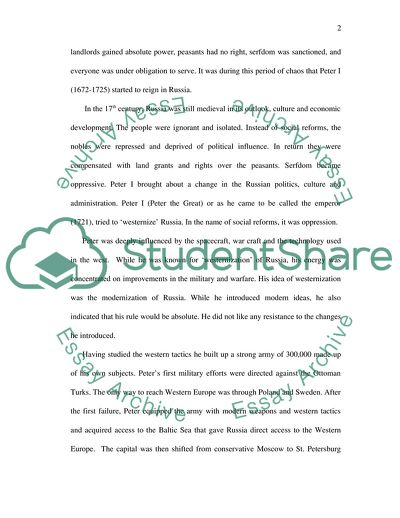Cite this document
(Modernization and Westernization of Russia was Gradual and Far from Wi Essay, n.d.)
Modernization and Westernization of Russia was Gradual and Far from Wi Essay. Retrieved from https://studentshare.org/history/1703271-how-true-is-it-to-say-that-during-the-period-1660-1812-the-modernisation-and-westernisation-of-russia-was-gradual-and-far-from-widespread
Modernization and Westernization of Russia was Gradual and Far from Wi Essay. Retrieved from https://studentshare.org/history/1703271-how-true-is-it-to-say-that-during-the-period-1660-1812-the-modernisation-and-westernisation-of-russia-was-gradual-and-far-from-widespread
(Modernization and Westernization of Russia Was Gradual and Far from Wi Essay)
Modernization and Westernization of Russia Was Gradual and Far from Wi Essay. https://studentshare.org/history/1703271-how-true-is-it-to-say-that-during-the-period-1660-1812-the-modernisation-and-westernisation-of-russia-was-gradual-and-far-from-widespread.
Modernization and Westernization of Russia Was Gradual and Far from Wi Essay. https://studentshare.org/history/1703271-how-true-is-it-to-say-that-during-the-period-1660-1812-the-modernisation-and-westernisation-of-russia-was-gradual-and-far-from-widespread.
“Modernization and Westernization of Russia Was Gradual and Far from Wi Essay”. https://studentshare.org/history/1703271-how-true-is-it-to-say-that-during-the-period-1660-1812-the-modernisation-and-westernisation-of-russia-was-gradual-and-far-from-widespread.


